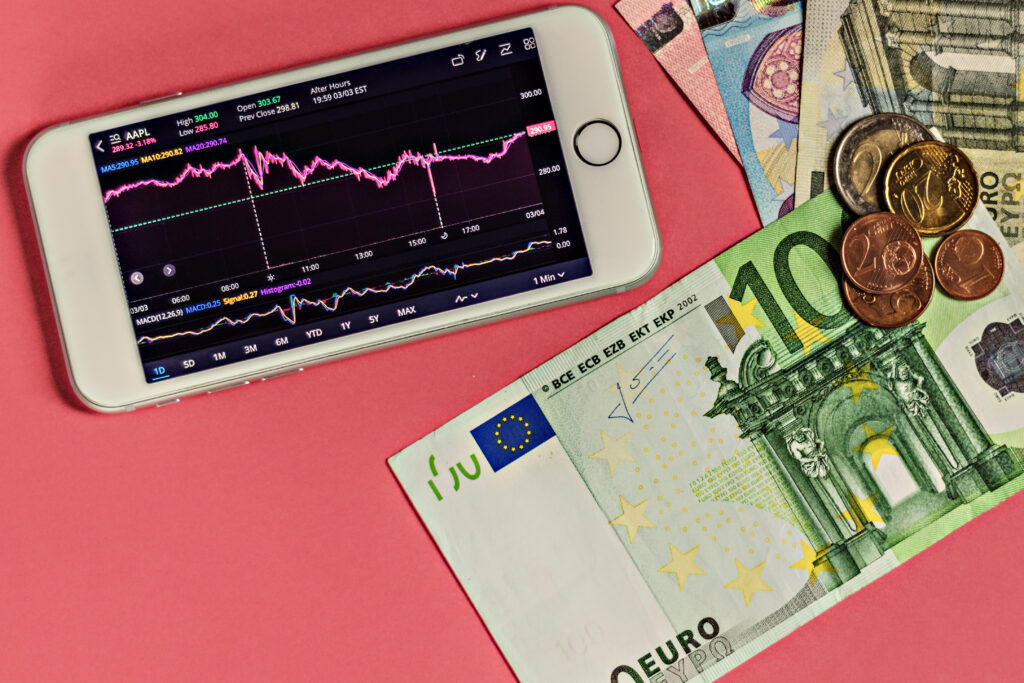Introduction
Shielding Forex from Global Cybersecurity Threats has become a top priority in today’s hyper-connected global economy. The foreign exchange (forex) market, with over $7.5 trillion traded daily, stands as the largest and most liquid financial market in the world. Transactions flow seamlessly across London, New York, Tokyo, and Sydney, enabling governments, multinational corporations, investors, and retail traders to maintain economic balance and facilitate currency exchange.
Yet, the same technology that powers this efficiency also opens the door to serious vulnerabilities. Sophisticated cyberattacks now target trading platforms, data providers, payment systems, and even central banks. A single breach can trigger massive losses, disrupt trading flows, and erode confidence in entire economies.
Over the past decade, these threats have evolved from basic hacking attempts to state-sponsored attacks, coordinated ransomware operations, and advanced persistent threats (APTs)—strategic moves designed to influence markets, shift currency values, and damage trust in financial systems. Understanding these risks is essential to protecting the forex market, which underpins tourism, global trade, cross-border investments, and economic policy worldwide.
The Expanding Cybersecurity Threat Landscape in Forex
The forex market’s rapid digital transformation has brought benefits like faster execution speeds, real-time analytics, and 24/5 trading accessibility. Yet, it has also created a wider attack surface for malicious actors. Cyber threats can strike at multiple layers: the trader’s device, broker servers, liquidity providers, data feeds, and settlement networks.
Key Cyber Threats Impacting Forex
1. Hacking and Data Breaches
Attackers gain unauthorised access to trading systems or broker databases, stealing sensitive information like account credentials, trade histories, and payment details. These breaches can lead to identity theft, fraudulent withdrawals, and manipulation of trading accounts.
2. Distributed Denial of Service (DDoS) Attacks
Cybercriminals overwhelm forex platforms with fake traffic, causing slowdowns or complete shutdowns. In fast-moving markets, even a few minutes of downtime can mean millions in missed trades.
3. Insider Threats
Disgruntled employees or compromised insiders can disable security protocols, leak sensitive information, or execute fraudulent trades. Such attacks are often harder to detect because they come from within the organisation.
4. Phishing and Social Engineering
Scammers send fraudulent emails, create fake broker websites, or impersonate support staff to trick traders into revealing login details. Even experienced traders can fall for well-crafted phishing schemes.
5. Ransomware Attacks
Hackers encrypt trading or client data and demand payment in cryptocurrencies for its release. If a broker or bank fails to respond quickly, it risks losing not only data but also client trust.
How Cyber Threats Disrupt Forex Market Operations
Forex trading depends on speed, accuracy, and uninterrupted access to market data. Cyberattacks compromise all three, leading to serious disruptions.
Operational and Financial Consequences
Trading Platform Outages: If a trading platform is attacked during a major market-moving event, traders may miss critical opportunities or be unable to close losing positions.
Price Manipulation: Hackers can inject false data into market feeds or use high-frequency trading bots to create artificial volatility, trapping traders into poor positions.
Data Feed Tampering: Altered data can cause wrong technical analysis results, leading to flawed trading decisions.
Loss of Confidence: Repeated attacks can make traders abandon certain brokers or even avoid trading specific currency pairs linked to vulnerable economies.
The Role of Currency Confidence in Cybersecurity
Currency value is not determined solely by economic fundamentals—it is also influenced by perception and trust. When cyberattacks target a nation’s financial infrastructure, the ripple effects can quickly impact its currency.
Currency Depreciation: Persistent breaches can cause capital flight, weakening the national currency.
Shift to Safe-Haven Assets: Traders often move funds into safer currencies like the US dollar, Swiss franc, or Japanese yen during times of cyber uncertainty.
Changes in Trading Strategy: Traders may reduce leverage, hedge more positions, or avoid high-risk currencies when cyber incidents occur.
Global Case Studies: Cyber Threats Affecting Forex
Bangladesh Bank Heist (2016): Hackers exploited the SWIFT system to steal $81 million from Bangladesh’s central bank. The incident shook confidence in global payment systems.
NotPetya Ransomware (2017): Initially targeting Ukraine, this attack spread worldwide, disrupting banks and affecting forex settlements.
SolarWinds Supply Chain Hack (2020): A sophisticated breach impacted US government agencies and corporations, raising alarms about the vulnerability of integrated IT systems used in forex.
New Zealand Stock Exchange Attack (2020): A DDoS assault halted trading for days, indirectly influencing forex flows as capital markets froze.
Australian Financial Sector Attack (2023): A coordinated ransomware campaign targeted several broking firms, temporarily affecting AUD-related trades.
Mitigating Cybersecurity Risks in Forex
Defending the forex market requires a multi-layered approach involving technology, regulation, and education.
Technological Measures
- Advanced Encryption: End-to-end encryption protects sensitive transaction data from interception.
- AI-Based Threat Detection: Artificial intelligence can identify unusual trading patterns that indicate potential breaches.
- Multi-Factor Authentication (MFA): Adding extra verification layers makes account compromise harder.
- Segregated Trading Servers: Isolating critical infrastructure reduces the impact of breaches.
Human and Organisational Measures
- Employee Cybersecurity Training: Staff must recognise phishing attempts and unusual system activity.
- Regular Security Audits: Penetration testing helps identify and patch vulnerabilities.
- Incident Response Protocols: Clear steps for recovery after an attack minimise downtime.
Regulatory and Collaborative Measures
- Strict Compliance Requirements: Regulators impose security standards for brokers and banks.
- International Threat Intelligence Sharing: Financial institutions collaborate to share attack data.
- Public Awareness Campaigns: Educating retail traders reduces the success rate of phishing scams.
The Road Ahead for Forex Security
As forex moves further into blockchain settlements, AI-based analytics, and instant payment solutions, cybersecurity will remain a central concern. While these technologies offer better transparency and faster execution, they also present new vulnerabilities.
The future of forex security will rely heavily on:
- Global Cooperation: Cyber threats do not respect borders—international coordination is key.
- Continuous Monitoring: Real-time threat tracking will become standard for brokers and liquidity providers.
- Trader Awareness: Retail traders will need to demand proof of cybersecurity readiness before choosing brokers.
Conclusion
Global cybersecurity threats are not just a background risk—they are active forces shaping forex stability, trader behaviour, and market trust. From high-profile central bank hacks to targeted broker ransomware, the range of threats is vast and growing.
The best defence lies in proactive investment in security technologies, strict adherence to regulations, and coordinated action between governments and financial institutions. By combining technological innovation with human vigilance, the forex market can stay resilient against evolving cyber risks while continuing to power the global economy.
Read our latest article on Global Housing
FAQs
Q: What is global cybersecurity?
A: It refers to worldwide efforts, strategies, and technologies to protect systems, networks, and data from cyberattacks.
Q: What are cyber threats?
A: Malicious activities like hacking, phishing, malware, and ransomware aimed at compromising digital security.
Q: Why is global cybersecurity important?
A: The interconnected digital economy makes people, organisations, and nations vulnerable, so protection is essential for privacy, stability, and security.
Q: What are common cybersecurity best practices?
A: Use strong, unique passwords, update software regularly, employ antivirus tools, browse safely, and enable two-factor authentication (2FA).
Q: What role do governments play?
A: They set regulations, enforce standards, create cybersecurity policies, and encourage international cooperation to protect critical systems.
Q: How is cybersecurity different from information security?
A: Cybersecurity focuses on digital protection, while information security covers both physical and digital safeguards.
Q: What are the main challenges?
A: Constantly evolving threats, a shortage of skilled professionals, and the need to adapt to new technologies.
Q: What is the Dark Web’s role in cybersecurity risks?
A: It’s a hidden part of the internet where illegal activities, like selling stolen data and hacking tools, occur.
Q: How does AI help in cybersecurity?
A: AI improves threat detection, automates responses, and analyses large data sets to identify potential attacks.
Q: What should be done after a cyberattack?
A: Isolate affected systems, report the incident, follow an incident response plan, and notify affected parties promptly.
Click here to read more on Cybersecurity




